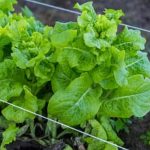Vegetable gardens have become increasingly popular in recent years, as more individuals recognize the environmental benefits of growing their own produce. As interest in sustainable living continues to grow, vegetable gardens play a crucial role in reducing our carbon footprint and promoting eco-friendly practices. This article delves into the various environmental benefits of vegetable gardens, highlighting their significance in creating a more sustainable and environmentally-conscious lifestyle.
The concept of vegetable gardens goes beyond just having access to fresh and organic produce. It involves actively participating in a sustainable form of agriculture that contributes to a healthier planet. With the growing concern over climate change and environmental degradation, vegetable gardens offer an accessible way for individuals to make a positive impact on the environment. From reducing carbon emissions to conserving water and promoting biodiversity, the advantages of vegetable gardening are multifaceted.
Moreover, as awareness about the environmental impact of traditional farming practices continues to rise, more people are turning to vegetable gardening as a means of minimizing their ecological footprint. By understanding the importance of cultivating one’s own vegetables at home, individuals can actively work towards mitigating environmental issues while also enjoying the numerous health and social benefits that come with gardening.
In this section, we will explore some key aspects of why vegetable gardens are important for sustainable living and how they contribute to creating a greener and more environmentally-friendly world.
Reduction of Carbon Footprint
Elimination of Transportation and Packaging
One of the most significant environmental benefits of vegetable gardens is their ability to reduce carbon emissions by eliminating the need for transportation and packaging of store-bought produce. When vegetables are grown in home gardens, there is no need for them to be transported from farms to markets, reducing the carbon footprint associated with food distribution. Additionally, the packaging required for commercially-sold vegetables is also eliminated, further lowering the environmental impact.
Impact on Greenhouse Gas Emissions
Homegrown vegetables have a direct impact on lowering greenhouse gas emissions. By minimizing the distance that food needs to travel from farm to table, vegetable gardens help to reduce the use of fossil fuels in transportation. Furthermore, when people grow their own vegetables, it reduces their dependence on industrial agriculture, which is a major contributor to greenhouse gas emissions due to its intensive use of machinery and chemicals.
Advantages for Sustainable Living
The reduction of carbon footprint through vegetable gardening aligns with the growing interest in sustainable living. More individuals and families are recognizing the importance of taking steps to minimize their environmental impact, and starting a vegetable garden can be an effective way to contribute to this effort.
As people become more aware of the environmental benefits of vegetable gardens in reducing carbon emissions, they are increasingly turning towards growing their own food as a means of promoting eco-friendly practices in their daily lives.
Soil Health and Enhancement
Vegetable gardens play a crucial role in promoting soil health and enhancement, making them an essential component of sustainable living. By naturally fertilizing the soil and reducing the use of chemicals, vegetable gardens contribute to the overall well-being of the environment. Here are some key ways in which vegetable gardens positively impact soil health:
- Organic matter enrichment: When organic materials such as compost, mulch, and other natural fertilizers are used in vegetable gardens, they enrich the soil with essential nutrients. This not only promotes plant growth but also improves soil structure and fertility.
- Soil erosion mitigation: The growth of vegetable plants helps to anchor soil in place and prevent erosion. The roots of these plants create a network within the soil, helping to hold it together and reduce the risk of erosion caused by wind or water.
- Promotion of biodiversity: Vegetable gardens encourage a diverse array of microorganisms and beneficial insects in the soil. This biodiversity is essential for maintaining healthy soil ecosystems and supporting plant growth.
In addition to these benefits, vegetable gardens can also serve as a natural habitat for earthworms, which further contributes to improved soil structure. Overall, investing in vegetable gardening can have a positive impact on the environment by nurturing and enhancing the health of the soil.
By fostering healthier soils through sustainable gardening practices, individuals can actively contribute to preserving our planet’s natural resources. Whether on a small scale in home gardens or larger community plots, promoting healthy soils through vegetable gardening ultimately supports environmental conservation efforts while yielding nutritious produce for local consumption.
Water Conservation
One of the significant environmental benefits of vegetable gardens is their contribution to water conservation. Compared to traditional agriculture, vegetable gardens require less water, making them a more sustainable option for food production.
According to the Environmental Protection Agency, 30% of household water usage in the United States is used for outdoor purposes, such as watering lawns and gardens. By implementing practices like drip irrigation and rainwater harvesting, vegetable gardens can minimize water usage while still providing ample hydration for plants to thrive.
In addition to reducing overall water consumption, vegetable gardens also help prevent water pollution. Runoff from chemical fertilizers and pesticides used in conventional farming can contaminate nearby water sources, posing risks to aquatic ecosystems and human health. In contrast, the natural methods employed in vegetable gardening, such as composting organic matter for nutrient-rich soil and practicing crop rotation, contribute to healthier soils that are better equipped to retain water and filter out pollutants.
As more individuals embrace the concept of sustainable living and environmental stewardship, the awareness of water conservation through activities like vegetable gardening continues to grow. By encouraging responsible water management and conservation practices within their own homes and communities, gardeners play a vital role in safeguarding this precious resource for future generations.
| Environmental Benefits | Data |
|---|---|
| Reduction of Carbon Footprint | Eliminating the need for transportation and packaging of store-bought produce helps reduce carbon emissions |
| Soil Health and Enhancement | Natural fertilization and reduced chemical use positively impact soil health. |
| Biodiversity and Habitat Creation | Vegetable gardens provide a diverse habitat for beneficial insects, birds, and wildlife. |
Biodiversity and Habitat Creation
Vegetable gardens play a crucial role in promoting biodiversity and creating a habitat for various forms of wildlife. By cultivating a diverse range of plant species, gardeners can attract beneficial insects, birds, and other wildlife, ultimately contributing to a more balanced ecological environment. The environmental benefits of vegetable gardens in terms of biodiversity and habitat creation are significant, making them an essential component of sustainable living.
Here are some ways in which vegetable gardens support biodiversity and habitat creation:
- Plant diversity: Vegetable gardens that incorporate a variety of plants provide food and shelter for a range of wildlife, including pollinators, birds, and beneficial insects.
- Wildlife support: Vegetable gardens create opportunities for wildlife such as bees, butterflies, and birds to thrive by providing them with nectar sources, nesting areas, and protection from predators.
- Ecological balance: By fostering a more diverse ecosystem within their backyard or community space, gardeners contribute to the overall health and resilience of the local environment.
Overall, vegetable gardens contribute to the preservation and enhancement of biodiversity while also providing valuable habitat for different forms of wildlife. As gardeners embrace sustainable practices such as avoiding chemical pesticides and herbicides, they create a healthier environment not only for their plants but also for the myriad species that rely on these habitats for survival. Through their commitment to creating thriving ecosystems within their own spaces, gardeners can have a tangible impact on promoting environmental sustainability.
By choosing to start their own vegetable gardens or participate in community gardening initiatives focused on biodiversity conservation, individuals can actively contribute to the preservation of natural habitats while enjoying the rewards of sustainable gardening practices. Whether it’s planting native flowers to attract pollinators or setting up bird feeders and houses in the garden area, every effort made towards supporting biodiversity has far-reaching benefits for the environment.
Reduction of Pesticide Use
When it comes to the environmental benefits of vegetable gardens, one of the most significant advantages is the reduction of pesticide use. By growing your own vegetables at home, you can minimize the need for synthetic pesticides and herbicides, leading to a healthier environment. This is especially important in the context of traditional agriculture, where chemical pollution from pesticides has been a major concern.
Natural Pest Control Methods
One way in which vegetable gardens contribute to reducing pesticide use is through the implementation of natural pest control methods. For example, companion planting involves growing certain plants together to repel pests or attract beneficial insects that act as natural predators.
Additionally, using physical barriers such as row covers can help protect crops from pests without resorting to chemical solutions. These methods not only reduce the environmental impact of gardening but also promote a more balanced and sustainable approach to pest management.
Healthier Ecosystem
By minimizing pesticide use in vegetable gardens, there is a positive impact on both local and global ecosystems. Synthetic pesticides can have detrimental effects on non-target organisms, including beneficial insects, birds, and other wildlife. By choosing natural pest control methods in vegetable gardening, these ecosystems are better preserved and allowed to thrive within a more diverse habitat.
Promoting Environmental Stewardship
Engaging in pesticide-free gardening practices promotes environmental stewardship and contributes to overall ecological health. It encourages individuals to take an active role in safeguarding their immediate environment while also contributing to broader conservation efforts at a global scale. Through reducing pesticide use in vegetable gardens, individuals can be part of a larger movement towards sustainable living and environmental responsibility.
Food Waste Reduction
Vegetable gardens play a crucial role in reducing food waste and promoting sustainable practices. By growing one’s vegetables, individuals can harvest only what they need, minimizing the amount of uneaten produce that ends up in landfills. Additionally, organic scraps from vegetable gardens can be composted to create nutrient-rich soil for future gardening endeavors.
According to the Environmental Protection Agency, food scraps and yard waste make up about 30% of what we throw away, making it the largest component of municipal solid waste. Through vegetable gardening, this percentage can be significantly reduced, leading to a more sustainable food system and a healthier environment.
In the United States alone, it is estimated that around 30-40% of the food supply is wasted, equating to approximately 133 billion pounds and $161 billion worth of food annually. By embracing vegetable gardening and adopting mindful consumption practices, individuals can directly contribute to minimizing this wastage. This not only benefits the environment by reducing methane emissions from decomposing food but also helps address global issues such as hunger and resource scarcity.
Furthermore, communities that prioritize vegetable gardening and share surplus produce with neighbors and local organizations are fostering a culture of resourcefulness and generosity while actively combating food insecurity. Vegetable gardens have been shown to strengthen community bonds through shared interests in sustainable living and environmental stewardship. The act of exchanging homegrown vegetables cultivates a sense of unity among neighbors and encourages collective efforts toward promoting environmentally-friendly practices.
| Environmental Benefit | Impact |
|---|---|
| Reduction of food waste | Minimization of uneaten produce in landfills; decrease in methane emissions |
| Community building | Promotion of shared interests in sustainable living; unity among neighbors |
Community and Social Benefits
Vegetable gardens not only offer environmental benefits but also contribute to building a sense of community and social interaction. One of the significant advantages of engaging in vegetable gardening is the opportunity to share surplus produce with neighbors, friends, and local community members.
This not only promotes food sustainability but also fosters a sense of generosity and camaraderie within the community. In addition, participating in local gardening initiatives such as community gardens or urban farming projects can bring people together, creating a shared space for learning and collaboration.
Moreover, vegetable gardening serves as an educational platform for individuals of all ages. Children can learn about the natural growing process of fruits and vegetables, while adults can expand their knowledge about sustainable agricultural practices. This hands-on experience can lead to a deeper appreciation for nature and the environment while promoting a healthier lifestyle through the consumption of fresh, homegrown produce.
Furthermore, engaging in vegetable gardening can have positive impacts on mental and physical well-being. The act of tending to a garden provides an opportunity for outdoor physical activity, reducing stress levels and promoting overall mental health.
Additionally, the satisfaction that comes from growing one’s own food offers a sense of accomplishment and fulfillment, further enhancing emotional well-being. Overall, vegetable gardens have the potential to create stronger social connections within communities while promoting education and health among individuals who participate in them.
Conclusion
Vegetable gardens offer a multitude of environmental benefits that contribute to a more sustainable and eco-friendly lifestyle. One of the key advantages of vegetable gardens is their ability to reduce carbon footprint. By eliminating the need for transportation and packaging of store-bought produce, homegrown vegetables help lower greenhouse gas emissions, making a positive impact on the environment.
Moreover, vegetable gardens promote soil health and enhancement through natural fertilization and reduced chemical use. By mitigating soil erosion and promoting biodiversity, they contribute to the overall health of the ecosystem. In addition, vegetable gardens play a crucial role in water conservation by utilizing techniques such as drip irrigation and rainwater harvesting to minimize water usage compared to traditional agriculture methods.
Furthermore, these gardens provide a diverse habitat for beneficial insects, birds, and other wildlife, supporting pollinators and fostering ecological balance. Their contribution to reducing pesticide use and minimizing food waste also makes them an essential component in creating a more sustainable food system. Overall, vegetable gardens are not only beneficial for the environment but also offer social and community-building aspects such as sharing surplus produce and participating in local gardening initiatives.
As individuals look for ways to live a more sustainable lifestyle, establishing vegetable gardens can be a practical and impactful step towards contributing to environmental conservation. Whether it’s in one’s backyard or a community garden, the act of growing one’s own food provides numerous benefits that extend beyond personal consumption. It is essential to recognize the value of vegetable gardens in promoting environmentally-friendly practices and embracing sustainable gardening methods.
Call to Action
In conclusion, the environmental benefits of vegetable gardens are undeniable. From reducing carbon footprint to promoting biodiversity and habitat creation, vegetable gardens play a significant role in sustainable living and environmental conservation. By eliminating the need for transportation and packaging of store-bought produce, vegetable gardens contribute to the reduction of carbon emissions, thus mitigating their impact on climate change.
Additionally, the natural fertilization and reduced chemical use in vegetable gardens enhance soil health, mitigate soil erosion, and promote biodiversity. The water-saving benefits of vegetable gardens compared to traditional agriculture also make them a crucial resource for water conservation.
Furthermore, the reduction of pesticide use and food waste through vegetable gardening contributes to a healthier environment and promotes a more sustainable food system. Additionally, the social and community-building aspects of vegetable gardening, such as sharing surplus produce and participating in local gardening initiatives, highlight the educational and health benefits of engaging in vegetable gardening as a community.
In light of these environmental benefits, it is essential to encourage more individuals to consider starting their own vegetable gardens and promoting sustainable gardening practices. By providing resources and tips for those interested in creating their own environmentally-friendly vegetable gardens, we can collectively contribute to a more sustainable and eco-friendly lifestyle. It is up to each one of us to take action towards a greener future by embracing the environmental benefits of vegetable gardens.
Frequently Asked Questions
How Does a Vegetable Garden Help the Environment?
A vegetable garden helps the environment in several ways. By growing your own vegetables, you reduce the demand for commercially grown produce, which often involves extensive pesticide and herbicide use. Additionally, home gardens help conserve water by reducing the need for irrigation and contribute to better soil health.
Why Are Vegetables Good for the Environment?
Vegetables are good for the environment because they require fewer resources to grow compared to animal products. Plant-based diets have a lower carbon footprint and generally use less land, water, and energy. By consuming vegetables, we can help reduce greenhouse gas emissions and lessen our impact on the environment.
What Are the Environmental Benefits of a Community Garden?
Community gardens offer numerous environmental benefits. They provide green spaces within urban areas that help absorb carbon dioxide and other pollutants from the air, thereby improving local air quality.
Community gardens also promote biodiversity by providing habitat for various plant species and beneficial insects, thus supporting a healthier ecosystem within urban environments. Additionally, these shared garden spaces often encourage the practice of organic gardening methods, leading to reduced chemical use and promoting sustainable gardening practices within the community.

If you’re looking to get into vegetable gardening, or are just looking for some tips on how to make your current garden better, then you’ve come to the right place! My name is Ethel and I have been gardening for years. In this blog, I’m going to share with you some of my best tips on how to create a successful vegetable garden.





